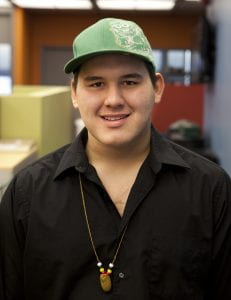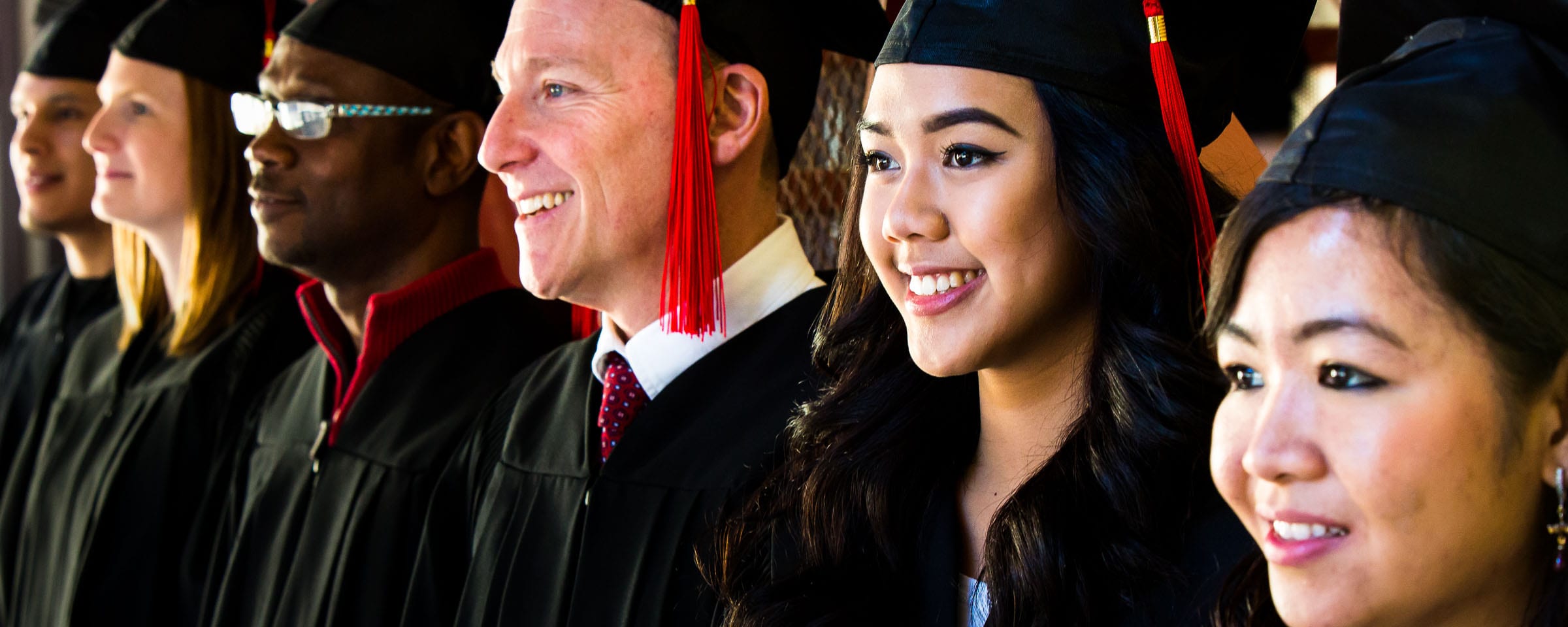Grad profile: Grant Maluga (Biindigen College Studies)
 Impressions of Grant Maluga can be deceiving, particularly if your first meeting takes place on a football field. Six feet tall and broadly built, Maluga might come off as an intimidating presence. But nothing could be further from the truth.
Impressions of Grant Maluga can be deceiving, particularly if your first meeting takes place on a football field. Six feet tall and broadly built, Maluga might come off as an intimidating presence. But nothing could be further from the truth.
“People might look at me and think I’m immature or tough or troubled,” he says. “But on in the inside, I’m soft as a teddy bear.”
Maluga moved to Winnipeg this past autumn to join the Winnipeg Rifles as a defensive lineman while taking Biindigen College Studies at Red River College. Biindigen (Ojibwe for “welcome”) combines introductory college programs with Aboriginal culture, language and history courses. Maluga says he feels at home.
“Everyone in Biindigen is friendly… you get a lot of one-on-one attention there,” he says. “A teacher the other day told me, ‘You’re more of a friend than a student.’”
Some people might be surprised at the momentum in Maluga’s life, considering the hurdles he’s had to overcome. When he was eight, his mother left the family home in Brandon; he hasn’t seen her since. He’s also had to cope with his Attention Deficit Hyperactivity Disorder (ADHD).
“Once I was in Grade 6, I realized I had ADHD. The stories I was told about when I was younger, you can hear the ADHD in them.”
Maluga took medication, but the pills either failed to curb his behavioural problems or turned him into – in his words – “a zombie.” Arguments with his father were frequent.
“I could tell I was going downhill,” he says.
In high school, however, another option presented itself. A teacher at his school suggested football.
“I was 100 per cent better playing football,” says Maluga. He was able to channel his energy and aggression onto the field, helping him focus when he was in the class. While his shyness and hyperactivity had previously prevented close friendships from forming, in the team atmosphere and camaraderie of football he was able to connect with the coaches as well as his teammates. Even more important were the changes at home.
“I had arguments with my dad — we weren’t close, father and son-wise. Football brought us closer, gave us something to talk about.” Those conversations, initially about sports, opened up lines of communication that hadn’t existed before.
“Once I found I was good at something, I realized I could change,” Maluga says.
“In Grade 10, I felt like I couldn’t go anywhere. By grade eleven, I started to get awards and people helping me. I thought to myself, ‘Maybe I can use this to my advantage and help myself.’”
“I see where I’ve gotten now and where I would’ve gotten if I hadn’t gotten into football. I’ve been told I shouldn’t base my whole life on football, but it’s been helping me since I was young,” Maluga says. “Football was there for me. Until you break something, then you should have school!”
That’s where Biindigen came in for Maluga. During an initial interview to attend Red River College, Biindigen College Studies was recommended to him as a program where he could get an introduction to college life while keeping his options open — all while gaining a greater understanding of his Aboriginal heritage.
“I’d recommend it to everyone to start off here – from troubled youth to students who don’t know what to take,” he says. “It’ll give you more options.”
Maluga’s current classes include Accounting, Computer Technology, Career Studies and Aboriginal Languages. He’s learning to speak Ojibwe — a language he could only speak a few words of before.
Between college, football and a casual job, Maluga doesn’t have an easy schedule. Up at 7 a.m., he catches a bus to school 15 minutes later, where he’ll stay until 4 p.m. Then it’s off to football practice until late in the evening. If he can’t catch a ride home with a teammate and has to take the bus, he can expect to be home by 10:30 p.m.
It’s an exhausting schedule.
“My motivation is just … I got told a lot of stuff by my coaches and dad. ‘If you work hard at the beginning, in the end it all pays off.’”
“On my notebook, under the picture of an eagle, I have a quote: ‘Only you can set the limits to what you can achieve.’ I’m thinking of getting that as a tattoo.”
Profile by Matt TenBruggencate (first year, Creative Communications)
